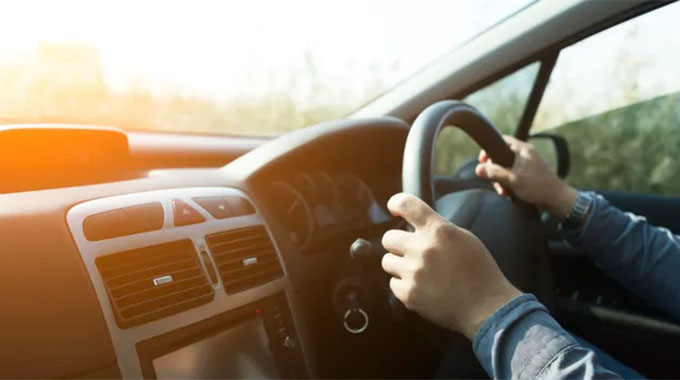EDITORIAL COMMENT : Drive to stay alive this Easter holiday

More than 2 000 people a year died on Zimbabwe’s roads with peaks in the daily death rate during the festive season and the long holiday weekends of Easter and Heroes Day as many more ordinary motorists take to the highways.
This weekend it is Easter, and unless far more motorists are prepared to obey the laws, follow advice and generally not assume they are immortal, there will be the usual spike in the traffic statistics.
All experts agree that the biggest killers are speed and alcohol, although significant contributions also come from poor driving, impatience which leads to overtaking on blind rises, and poor planning that leads to far more night driving than is necessary. Even mobile phone calls add to the death tolls.
The problem of speed is so well known that the Ministry of Transport and Infrastructure Development has imposed new regulations on bus operators to fit their vehicles with speed limiters, or at least maintain continuous tracking, to stop drivers going faster than 100km/h.
Back-up action is taken as was seen after investigations of a recent collision involving two buses that killed 13 people. It was found that neither company had fitted the limiters and that excessive speed had turned an accident that both drivers should have been able to avoid into a serious fatal accident. The operating licences of the two companies were suspended while they fix up their fleets and get their act together.
While private cars and similar vehicles are a lot smaller than heavy buses and can be slowed a lot more quickly, which allows for the higher limit of 120km/h, excessive speed in prevailing circumstances is a major killer, and will become more of a contributor as the undesired side-effect of the major highway rehabilitation in progress. People can drive faster on better roads.
It is a curiosity that law-abiding people, who are honest and non-violent in their dealing with everyone else, lose their inhibitions when it comes to traffic laws. It is common to hear pillars of society boasting on how fast they have driven, or how fast they have managed to push their new car over the speed limit. Other criminals do not boast of their crimes.
The willingness to drive after an afternoon or evening of drinking, when the driver must be well over the permitted limit, is another killer and helps to explain these holiday weekend spikes, when many will take a few drinks before they drive, or even drive while sipping at a bottle in the car.
The safe limit is reached after one or two beers, depending on body size, and when you look at people leaving a bar to drive away it is obvious that many are above what any expert would consider even vaguely safe.
Then, fairly frequently, we have those signs of impatience. People push and shove at intersections, terrified that they might be delayed one minute, and many take risks on the highway when overtaking. Often that impatience is made worse by the speeding and triggered by the drinking. So they appear in the police reports and traffic statistics.
The police and the Zimbabwe Traffic Safety Council urge drivers not to drive at hight, and when you look at the breakdown of the accident rates, and the surge in the hours of darkness, you can see why. Speeding is even more dangerous at night, and even the 120km/h limit in many circumstances is very dangerous.
The faster a driver is going the longer it will take to stop. But the headlights, and sometimes these are inadequate or even broken, light up the same distance ahead. If the driver needs a longer time to react and stop than the headlights can reach then any obstruction is a collision, since the driver cannot stop in time.
This is one reason why so many professional truck drivers keep their night driving to a minimum, taking their rest periods at night even though traffic is often less dense in the hours of darkness. Others should follow their example.
At the moment a lot of the adherence to traffic rules and sensible driving are a choice for drivers. The police are not properly equipped with speed measuring devices and breathalysers to check blood alcohol levels. This equipment should be made in Zimbabwe, to increase access for the police, and the number crunchers should note that the fines, at least in the first month or so of sustained use before people learned to obey the laws, would pay the purchase prices.
Another area that drivers might like to think about is not so much that they will be killed or hurt, but that they might become the killers. It is very hard to live with yourself when you have smashed into a pedestrian or another vehicle and someone has died as a result. No one should be in that position.
Then there are the accidents where it is someone else’s fault, but as those who teach defensive driving continually stress, this is not much of a consolation if you are dead. But again the defensive driving experts note that if you are driving within the limits of your vehicle and the road conditions, and are continually thinking about what could happen, there is a very high chance that you will be able to avoid the accident caused by someone else, or at least take action that makes the accident less lethal.
People talk about car faults, but in general every accident is caused by a driver. The police traffic officers find it very easy to analyse accidents and work out which driver broke the rules, or drove negligently or recklessly, and so caused the accident. This is why they can and do fine someone after every accident, or take them to court if the fixed fine is obviously inadequate.
Most drivers are aware that if there is a mechanical or electrical fault in their car it stops. Except for bad brakes and bad tyres, and at night bad lights, very few faults ever cause an accident. The most dangerous part of a car is the person behind the wheel, and that is why so much responsibility rests on the drivers, and why it is so important that they do think of others and do drive in such a way that they do not cause accidents and can at least avert the worst in accidents caused by someone else.










Comments